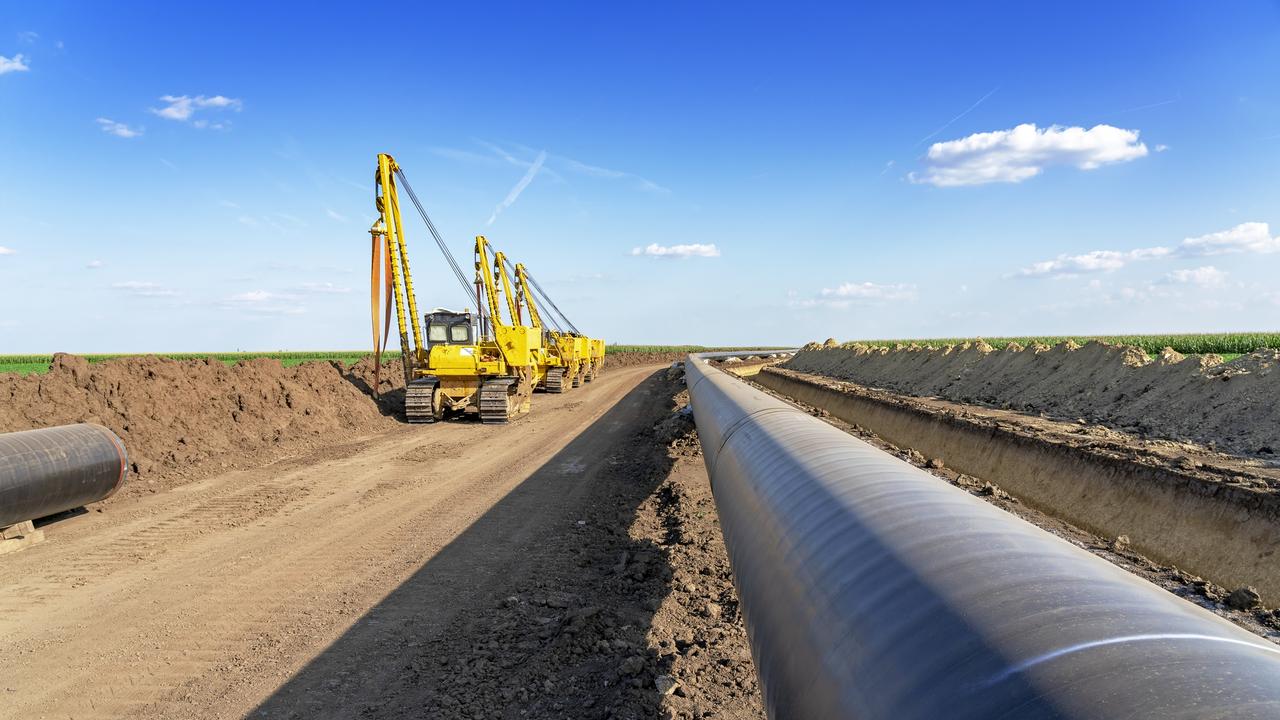Court of Appeal decision in Santos’s Central Queensland gas pipeline case
Santos took an American company to court over failure to produce vital infrastructure for the coal seam gas pipeline project in the Surat Basin by a due date.
Police & Courts
Don't miss out on the headlines from Police & Courts. Followed categories will be added to My News.
Santos has taken an American company to court over failure to produce vital infrastructure for the coal seam gas pipeline project in the Surat Basin by a due date.
Santos appealed a Supreme Court decision handed down on December 15, 2020, relating to the claim of more than $1.4 billion for five interrelated claims.
The decision handed down in the Court of Appeal by Justices Philip McMurdo, Debra Mullins and Peter Davis on September 24, 2021, ruled in favour of Santos with the decision in the Supreme Court of Queensland in December being set aside.
The infrastructure not completed by the due date were the water production system and the hub-compressor facility for each of hubs two, four and five.
As part of the process to move gas from mining site, the gas was partially treated compressed into “hubs” and then piped to Gladstone.
Fluor Australia Pty Ltd entered a contract with Santos to engineer and construct hubs by a certain date.
Fluor continued to work to complete the hubs past the specific contract date and incurred costs for which the company then sought payment for under the contract.

Santos claimed the costs incurred were of two kinds – costs which would have incurred even if Fluor had completed on time and the second type were costs that were incurred because Fluor did not complete the work on time.
“They were not a function of the volume of work performed,” Justice McMurdo wrote in the decision.
“They were overhead costs, which were incurred, after the date for Mechanical Completion, by Fluor and its subcontractors so as to be in a position to continue to perform and completed the work.”
Santos described them as time-related overhead costs, in that they increased with the passage of time until the work was completed.
Costs of this kind, Santos said, ought not to have been incurred, because they would have been avoided had Fluor performed the contract by achieving Mechanical Completion by the due dates.
This claim is a part of a $1.5 billion claim Santos lodged in 2016.
In 2015, after the project was completed, Santos exercised a contractual right to conduct audits of Fluor’s accounting records.
From that information, Santos considered that it had been wrongly charged for, and had incorrectly paid and Fluor should repay them.
The amounts claimed by Santos in this situation are AUD$431,374,798, USD$31,265,789, GBP£355,971 and EUR€213,668.
Fluor argued the delay costs were properly claimed, according to the interpretation of the contract and paid as actual costs.
The Supreme Court found in favour Fluor’s argument and it was on this grounds that Santos appealed the decision.
Santos claimed the delay costs were not payable within the actual costs which comprised part of the contract price, and therefore Santos did not have to pay them.
The Court of Appeal decision stated there were two definitions of actual costs in the contract which were not identical.
Santos had argued in the Supreme Court the second definition was not relevant to these disputed costs.
The second one made no reference to “excluded costs” which were defined in the contract and included breaches of the contract by Fluor – aka not completing the work by the deadline.
Justice McMurdo wrote the Supreme Court judge erred by accepting the second definition and interpreting it to mean: “Costs properly and reasonably incurred by [Fluor] directly in the performance of the Work without mark-up, profit or overheads.”
The Court of Appeal justices also ruled the Supreme Court judge also erred when they deemed the costs could be declared under another part of the contract.
There were clauses in the contract which Fluor acknowledged it was not entitled to make a claim upon Santos arising out of, or in connection with, any delay or obstruction to the progress of the work.
But one gave Fluor a provision to claim for some entitlements if an extension of time was granted.
“The burden of these costs, which were incurred through the fault of Fluor, was to remain with Fluor,” Justice McMurdo wrote.
More Coverage
Originally published as Court of Appeal decision in Santos’s Central Queensland gas pipeline case








